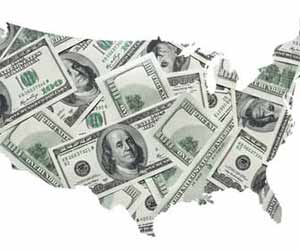Collections Department Jobs – First Party Bill Collectors
In the collections world, there are two terms used to denote who is collecting the debt, which is first and third party. First party is debt collected by the original creditor. Third party is debt collected by anyone other than the original creditor. This is important to know to determine the opportunities that will be available from the employer and what questions to ask at an interview as well as preparation of a tailored resume to fit that employers needs.

First party collections will always be a department in the organizational structure of a company. For example, a bank will have a collections department separate from the various other departments of the organization, and specifically tasked with risk management and recovery. First party collection departments may have a commission structure, but is uncommon for them to do so, paying a wage or salary only. Many commercial collection opportunities will be first party. It is important to note that most commercial collection opportunities will have a higher pay scale. Financial organizations, such as banks, credit card companies, and the like, are first party consumer collections.
One of the unique properties of first party, consumer collections is the process for working delinquent accounts. First party consumer collections will often work with a separation of delinquency rates in 30 day increments, often called buckets. A first party consumer collection department is often divided into early stage, or front-end, collections, which is 1 to 59 day delinquency, and late stage, or back end, collections, which is 60 to 120 or, depending on credit type, 180 day delinquency. The early stage department is customer service focused, whereas the late stage department’s focus is on recovery and has a more aggressive demand.
A reason for this organization by delinquency is charge-off. Charge-off of an account occurs after a specific period of delinquency. Charge-off for installment debt occurs at 120 days, whereas charge-off for revolving credit debt is one 180 days. A simple definition of charge-off is uncollectable debt, removed from the creditor’s balance sheet and charged as bad debt against the Loan Loss Reserves, as the account is no longer an asset. After charge-off occurs, the account may go to an in-house charge-off department for a final attempt of recovery. However, it is common practice for an original creditor to place the account with a third party collection agency on a contingency basis, or they may sell the account outright in order to mitigate loss after the charge-off occurs.
Some of the positive aspects of working for a first party are the structure of the working environment. The fact that they are part of a larger corporate setting allows for a stable relationship of various departments that an employee will depend on, such as human resources. There is a solid management structure, as well as clearly defined policies and procedures. First party collection departments often have a training department that provides thorough recurring training to keep employees up to date. Other positive aspects of working in first party collections may include higher wage opportunities, clear paths of advancement, and good benefits such as medical, dental, vision, retirement, 401K, and in some cases, tuition reimbursement.

